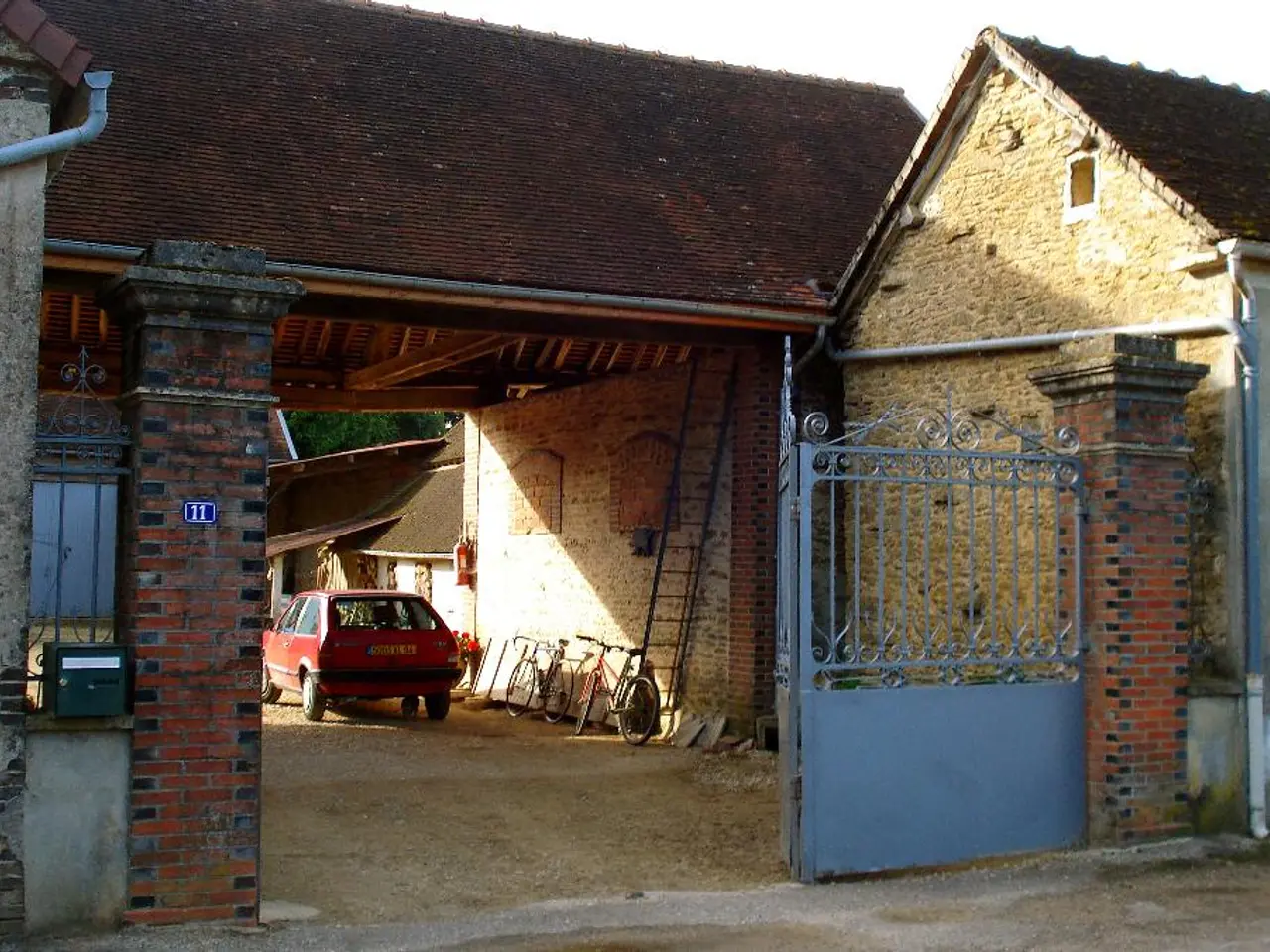Tax Tussles: Lars Klingbeil's Finance Frenzy
Construction Sites Managed by Klingbeil: A Common Goal Between Two Families - Klingbeil's construction sites: Combined homes share a common goal
Finance Minister Lars Klingbeil, fresh off a whirlwind week of political events, has taken the helm of a tricky tax estimation scenario. Known for his political prowess rather than financial acumen, Klingbeil is bracing himself for some tough talks. The federal government has foreseen a significant drop in tax revenue in the ensuing years, a prediction that mirrors the coalition negotiations' projections. Yet, pessimism is not winning over optimism.
Klingbeil, aware that he can't afford a lengthy learning curve, dives headfirst into the numbers, strategizing to keep the engine of the weak economy humming. He aims to hit the ground running, having inherited a plethora of preparatory work from his predecessor.
His to-do list is robust:
Budget I: Cabinetbound in June
Germany has been operating under a provisional budget since January, managing admirably but restricting new projects from the coalition agreement. Klingbeil intends to bring his budget proposal through the cabinet on June 25. A speedy process ensures consultation before the summer break, with the resolution planned for September. A daunting timeline, indeed, but one that Klingbeil, the self-proclaimed "Investment Minister," aspires to meet.
Budget II: The Proving Ground
Klingbeil's ambition doesn't end with the first budget. He aims to work on the budget for 2026 before the summer break as well. This phase will be marked by grueling negotiations, as Klingbeil will have to plan for some 10.2 billion euros less than initially anticipated due to the revised tax estimate. With coalition projects on the line, Klingbeil will need to prioritize and potentially make some tough choices.
Infrastructure Hurdles
One thorny issue involves the use of the infrastructure special fund. Experts warn that Germany could violate EU's debt rules, the so-called Stability and Growth Pact, if the fund is used indiscriminately. Germany, named a staunch advocate of prudence, faces a delicate dance with its European counterparts, hoping for leniency to execute its plans.
Economic Push: Pumping New Life
Klingbeil's primary objective is to reignite Germany's sluggish economy. He plans to introduce draft bills to lower energy costs and improve depreciation rules for businesses. In accordance with the coalition agreement, he proposes a temporary special depreciation of 30 percent on investments in equipment, aiming to stimulate investment.
However, creating space for such initiatives requires streamlining the budget—especially for planned corporate tax reductions from 2028 and income tax reforms. The timeline for tax breaks for longer-working pensioners remains up in the air.
Mission 2029: Future Finance Czar
Klingbeil's ascension to the Finance Ministry seems strategic rather than fiscal. The ministry doubles as the deputy chancellor's office, a position the SPD leader seeks to capture. Aligning his team with this long-term goal, Klingbeil seeks to show that the SPD's bet on him has been a wise move.
As the financial expert, Klingbeil places himself at the center of budgetary negotiations, influence-peddling, and consensus-building within the coalition led by Chancellor Friedrich Merz. Only time will tell if the SPD's gamble pays off. One thing's for sure—Klingbeil's inaugural months in office have set a challenging and exciting stage for Germany's financial future.
Financial Finesse: Budget Battles and Boosts
Klingbeil faces a myriad of financial challenges and opportunities in the coming years:
- Budget Challenges: Despite increased spending on infrastructure and defense, Klingbeil must identify budget savings elsewhere for fiscal responsibility[1].
- Infrastructure and Defense Spending: The government has new spending leeway in infrastructure and defense, but this must be managed carefully to avoid deficits[1].
- Global Economic Forces: The global economic landscape can impact Germany's budget, with potential inflation, interest rate changes, and growth fluctuations[1].
Crisis Management: Saving and Investing
Klingbeil addresses these challenges through budget consolidation, prudent spending, and strategic investment:
- Budget Consolidation: Klingbeil is focusing on reducing costs and improving efficiency in public spending for financial stability[1].
- Smart Spending: He plans to leverage a vast spending arsenal worth hundreds of billions of euros to rebuild and enhance infrastructure, boosting economic growth[3].
- Political Leadership: Klingbeil's crucial role as an SPD leader and Vice Chancellor aids in negotiating and implementing budget policies within the coalition government[2][3].
Klingbeil, amid tough budgetary challenges, seeks to balance fiscal responsibility with strategic spending to drive growth and stability in Germany's economy. His finance frenzy sets the stage for a fascinating financial chapter in German politics.
- Vocational training in EC countries is a key area of focus for Klingbeil's budget proposals, as he aims to improve and increase funding for apprenticeship programs to bolster the workforce and stimulate business growth.
- In his effort to reduce energy costs and bolster the economy, Klingbeil is working closely with business leaders to reform depreciation rules, providing incentives for investments in new equipment and technology.
- Amid the fiscal challenges he faces, Klingbeil is also spearheading policy-and-legislation changes to address the skills gap in various sectors through vocational training, which is seen as crucial for careers and economic development in Germany.





